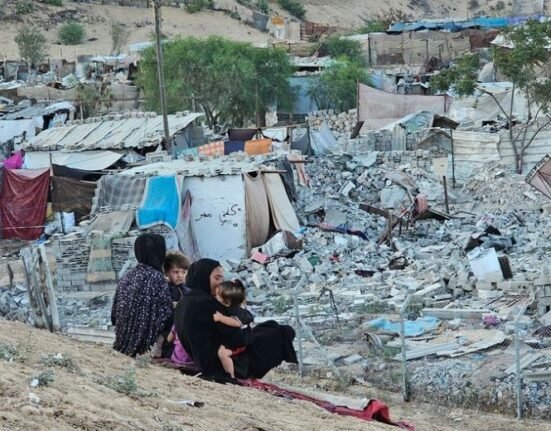HQ Team
November 12, 2024: UN Secretary-General António Guterres outlined a three-point plan to limit global temperature rise to 1.5 degrees Celsius by 2030, including new ways to finance climate change, such as global taxes on shipping, aviation and fossil fuel extraction.
“First, to limit global temperature rise to 1.5 degrees Celsius, we must cut global emissions 9% every year – by 2030 they must be down 43 per cent on 2019 levels. Unfortunately, they are still growing at the present moment,” he told delegates at the COP29 Climate Action Summit in Baku, the capital of Azerbaijan.
At what’s being called the ‘climate finance COP,’ representatives from all countries are expected to establish a new global climate finance target.
This target, or new collective quantified goal, is seen as one of the summit’s main deliverables. It will replace the existing $100 billion goal that is due to expire in 2025.
The Conference of Parties are looking to take steps towards operationalizing the ‘loss and damage fund’ agreed at COP28 and seen as the key international fund that would address climate change’s unavoidable harms.
‘Still-forming fund’
It is unclear when the still-forming fund will launch and begin making payments, even though the Philippines has subsequently been chosen to host its Board.
“Second, you must do more to protect your people from the ravages of the climate crisis. The most vulnerable are being abandoned to climate extremes.
“The gap between adaptation needs and finance could reach up to $359 billion a year by 2030,” he said, according to a UN statement. “These missing dollars are not abstractions on a balance sheet: they are lives taken, harvests lost, and development denied.
“Now more than ever finance promises must be kept. Developed countries must race the clock to double adaptation finance to at least $40 billion a year by 2025.”
‘Debt servicing soaks up funds’
The third priority, according to Guterres, was finance.
“Developing countries eager to act are facing many obstacles: scant public finance; raging cost of capital; crushing climate disasters; and debt servicing that soaks up funds. The result: adaptation denied.
Last year, developing and emerging markets outside China received just fifteen cents for every dollar invested in clean energy globally.
“COP29 must tear down the walls of climate finance. Developing countries must not leave Baku empty-handed. A deal is a must, and I’m confident it will be reached. We need a new finance goal that meets the moment.”
The Secretary-General said there was a need for a significant increase in concessional public finance and a clear indication of how these public funds would mobilise the trillions of dollars developing countries needed.
“COP29 must tear down the walls of climate finance.”
Innovative funding methods
He said governments could tap innovative sources, particularly levies on shipping, aviation, and fossil fuel extraction based on the principle that polluters must pay.
Guterres said developing nations must be given the confidence that the money will materialise through “a framework for greater accessibility, transparency, and accountability.”
The Secretary-General also urged governments to boost lending capacity for bigger and bolder Multilateral Development Banks, “and I hope some good news will come,” that requires a major recapitalisation.
“We are in the final countdown to limit global temperature rise to 1.5 degrees Celsius. And time is not on our side.
“With the hottest day on record …the hottest months on record …this is almost certain to be the hottest year on record. And a masterclass in climate destruction.
“Climate finance is not charity, it’s an investment. Climate action is not optional, it’s imperative,” Guterres said.
‘Inflation on steroids’
UN climate chief Simon Stiell, in his address to the conference, warned that “the climate crisis is fast becoming an economy-killer.
“Climate impacts are carving up to 5 per cent off GDP in many countries. Worsening climate impacts will put inflation on steroids unless every country can take bolder climate action,” said Stiell, who is the Executive Secretary of the UN Framework Convention on Climate Change (UNFCCC), which convenes the annual COP meetings.
“Tell your negotiators – skip the posturing – and move directly to finding common ground. Bring those positions together.”
All countries are expected to submit new climate targets — nationally determined commitments — by February 2025, ensuring their commitments align with the level of emissions reductions necessary for limiting global temperature rise to 1.5 degrees Celsius and preventing some of the worst effects of climate change.








